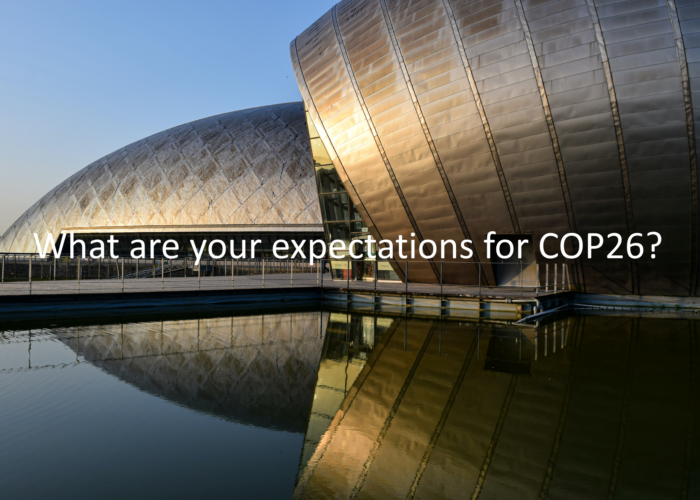Maria Teresa and Philipp, you will be attending COP26 in Glasgow. What are your expectations?
Philipp: “My expectation for COP26 is that it leads to a much stronger international collaboration, meaningful actions and a concrete roadmap how to reach net zero. I also expect more firm commitments and mobilization of capital. Capital which is needed in particular for green infrastructure in emerging markets, where we have a ‘once in a generation’ opportunity to get it right from the start. COP26 can be a major accelerator for a green transition, but we need to make sure that emerging and frontier markets are not left out.“
Maria Teresa: “As you know we have been working on climate adaptation over the past 7 years at BlueOrchard. We have discovered the importance of climate insurance to protect the livelihood of many people in EM/frontier markets that are at risk because of the effects of climate change. Extreme weather events have caused USD 200 billion in losses overall, still only 10% of the USD 5 trillion insurance market is in emerging economies. To develop affordable climate insurance products for the base of the pyramid a concerted action is required. Wealthy nations promised USD 100 billion a year in climate finance to developing nations once more at COP26. My expectation is to see an increase of climate finance flows for climate adaptation, which helps the poorest countries more, rather than a predominant focus -as in the past- on cutting emissions. What is great about climate adaptation strategies is that the main objective is on people, making them more resilient to storms, droughts and floods by insuring all the little they have.”
Maria Teresa, just transition is on everyone’s lips. But what does it actually entail, especially with regards to emerging markets?
Maria Teresa: “The concept is simple you cannot claim a positive change via climate action if some communities win and other loose, and if the voices of the climate beneficiaries are not heard and proactively factored in. It is a bit like eating something that has been cooked elsewhere and not in line with your dietary requirements. Just transition is to make sure that whatever climate action is prompted still has a human face. Often the debate is if “planet” is in order of priority more important than “people”. But reality is what is the point to have a beautiful planet without people, or vice versa? Also, we need to focus on the great opportunities that climate change can trigger for communities in terms of jobs, technology, digitalisation, and inclusion. In the end people need to be actors of change in the climate transition or this will not be sustainable. The G7 Impact Taskforce on Just Transition is defining this as a lens to be used across all investment strategies and even calling this a new standard.”
To wrap it up, Philipp, what role can impact investing play in this?
Philipp: “Impact investing is in my view one of the most powerful tools to have a targeted and lasting positive effect on communities and the environment. It allows for mobilization of capital at scale and deploys it in the most effective way with all the might of market forces, but at the same time factoring in externalities and taking stock on what could be achieved. It allows for investors to align their investments with their values and multiplies the impact that governments can make versus policy making alone. It is simply said the most effective tool to finance and accelerate climate change adaptation and mitigation and at the same time ensuring a just transition.”
Thank you both very much for your thoughts. I do really hope that your expectations will be met.
This interview was conducted by Christopher Zumofen, Marketing and Communication Intern at BlueOrchard.
